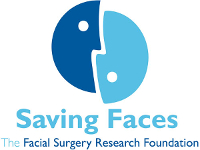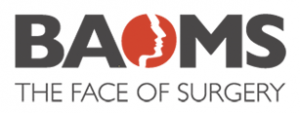| Title | Can the prophylactic use of a combination of pentoxifylline and vitamin E reduce the incidence and severity of radiotherapy induced complications in head and neck cancer patients – a feasibility study | |
| Study Type | Prospective Randomised Controlled Trial | |
| Status | In development | |
| Funding | Saving Faces – The Facial Surgery Research Foundation | |
We encourage the active involvement of members of the public and patients in our research. Please consider giving your feedback in the Public Survey tab below.
If you have not had cancer or the symptoms described, your opinion is still important to us. We want to ensure that all information related to the study is easy to understand and accessible to all patients.
Lay summary 300 words
Radiotherapy (RT) often causes unwanted side effects because normal cells are damaged by radiation. Tissue changes include scarring and radiation fibrosis, which causes muscle stiffening, immobility and pain. Head and neck cancer patients often experience swallowing problems while restricted mouth opening leads to inadequate diet, impaired speech, and poor oral hygiene.
Osteoradionecrosis (ORN) is a rare complication of RT causing areas of jawbone to become exposed and die. Advanced ORN causes jaw fractures so patients are unable to talk or eat and quickly become malnourished. ORN is difficult to treat. Surgery, if required, is long and complex and recovery may be incomplete. To date, the only semi-effective preventative measure is to have teeth, which are often healthy, extracted before RT.
A combination of pentoxifylline and vitamin E (PVe) can help to heal ORN. We therefore think that giving patients PVe after they finish their RT could reduce the incidence and severity of ORN. The RT-related changes that make the jaws vulnerable to ORN also damage facial, throat and neck muscles so PVe could also reduce fibrosis and mouth opening and swallowing problems.
This study will examine the feasibility of comparing PVe to a placebo (dummy pill). Patients will be randomly allocated to treatment groups so neither patients nor clinicians know which group they are in. Patients will be in the trial for 12 months. During standard quarterly review clinics, doctors will check whether patients have ORN. They will also measure mouth opening and neck fibrosis. Patients will complete questionnaires about their quality-of-life and swallowing. Our findings will inform the design of a larger definitive PVe study. Patients have been involved in the study design and will continue to provide input.
We will present our results in journals and at conferences and to patient H & N cancer groups and charities.
Note: you must have javascript enabled to view this form. If you have any issues viewing the survey through our site you can also access it here.
If you have any questions or wish to discuss any aspect of this proposal with a member of the study team, please call us on 0203 4655755 or email info@nforc.co.uk.
Background
Head and neck (H & N) cancer patients who have radiotherapy (RT) or chemoradiotherapy often suffer from unwanted side effects because normal as well as cancer cells are affected by radiation. Tissue changes include scarring and radiation fibrosis, a condition that can cause muscle stiffening, immobility and pain, which can have profound adverse effect on patients’ quality of life (QOL). Impaired swallowing is called dysphagia and is one of the most frequently reported problems.
Trismus, a restriction to mouth opening, is caused by RT induced inflammation and fibrosis in the muscles. It is associated with physical, functional and psychosocial complications including reduced nutrition, difficulty in speaking, compromised oral hygiene and an increased risk of inhaling foods or liquids causing pneumonia
A rarer, but more serious and debilitating complication of RT is osteoradionecrosis (ORN) in which an area of jawbone becomes exposed either in the mouth or through the skin and begins to die. As the necrosis (bone death) progresses the infection can cause jaw fractures so patients are unable to eat and quickly become malnourished. Constant symptoms of pain and infection have a serious adverse effect on QOL. ORN is difficult to treat. If surgery is required, operations are long and complex with significant morbidity and a risk of mortality. Prevention is therefore of key importance and to reduce the risk of occurrence teeth, some of which are perfectly healthy, are extracted prior to starting RT. Unfortunately; this still does not guarantee prevention.
Recently there have been some promising results in tackling ORN through the use of a combination of pentoxifylline and vitamin E (PVe). It is thought that PVe, which is well tolerated by most patients, can counteract radiation changes. The radiation changes that make the jaws vulnerable to ORN are the same changes that occur in the face, throat and neck muscles and skin following RT treatment. It has therefore been suggested that PVe could be used prophylactically immediately after RT to counteract these changes to reduce the incidence and severity of side effects.
Proposed study
The main aim of this study is to assess the feasibility of recruiting patients into a randomised PVe trial. RT patients will be assigned to one of the two study groups at random. The study will be blinded which means that neither patient nor clinician knows which group they are in. Half the patients will receive PVe while the other half, the control group, has a placebo (dummy pill).
We will follow patients closely for at least 12 months while they take the study medications. This will enable us to assess whether the study design is practical and acceptable to patients.
What will happen to patients who take part?
The RT and any other treatment that patients have for their cancer will not change because they are in the study. The standard treatment does not currently include PVe so patients in the placebo group will not be disadvantaged. A specialist clinician will review all the study participants quarterly. This is in line with their usual oncology appointments hence avoiding the burden of extra clinical visits. The routine oncology outpatient’s examination will determine whether any patient has ORN. We will also measure trismus and neck fibrosis, if any.
Our patient advisors have reviewed and commented on the design of this study. They reported that dysphagia is the most frequent and undesirable outcome of RT in terms of QOL. We will therefore assess swallowing using self-report questionnaires selected by these patients on the basis of their ease of use and relevance. The findings of the feasibility study will inform the design of a future substantive multi-centre study. We will continue to seek input from patients throughout.
Following completion of the trial, our results will be presented in appropriate journals and at conferences. The information will also be distributed to patient groups and charities involved in treating H & N cancer.
Planned trial duration
36 months: 6 months set-up, 12 months recruitment and a minimum of 12 months follow-up
Number of participants/centres
60 to 100 patients in 4 centres
Aims
To assess the feasibility of a national multi-centre randomised controlled trial
Objectives
To assess the acceptability of the proposed study to clinicians
To assess the acceptability of the proposed national RCT to patients
To assess the feasibility of providing patients with the study treatment and placebo
To assess patients’ compliance with the study protocol
To assess patients’ tolerance of the study treatment and placebo
To assess the appropriateness of the proposed outcome measures
To determine how many patients would be needed for the proposed national trial
- Recruitment rate at 6 and 12 months in 4 centres
- Feedback from participating centres
- Consent rate
- Patient compliance and follow-up rates
- Patient/relatives feedback re trial design
- Adverse event profile
- Characteristics of study results and between group comparisons
- Patient and clinician feedback regarding choice of outcomes
Chief Investigator
Professor Mark McGurk – Consultant Oral and Maxillofacial Surgeon, King’s College London
Co-investigators
Vinod Patel – Associate Specialist in Oral Surgery, Guy’s and St Thomas’ Hospitals
Michael Fenlon – Professor (Prosthodontics), King’s College London
Andrew Lyons – Consultant Oral and Maxillofacial Surgeon, Guy’s and St Thomas’ Hospitals
Teresa Guerrero Urbano – Consultant in Head and Neck Oncology, Guy’s and St Thomas’ Hospitals
For further information, please contact us
Email: info@nforc.co.uk


